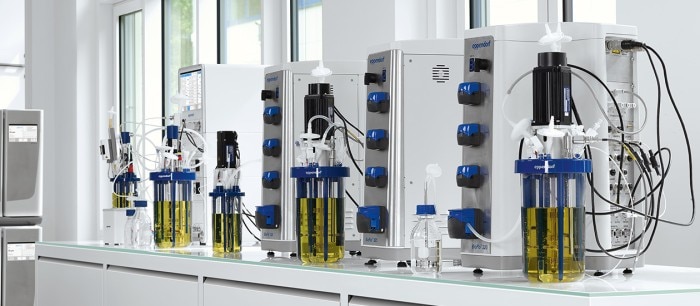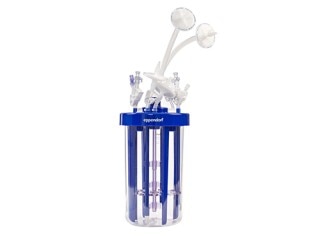MENU
CA | CAD
-
-
-
-
- Forum Labo 2025
- Advanced Therapies Week (ATW) 2025
- SLAS Europe 2025
- Bioprocessing Summit Europe 2025
- Medlab Middle East 2025
- SLAS International 2025
- Biologics World Nordics 2025
- ASIA LABEX: The Lab Show 2025
- BioProcess International Europe 2025
- ISEV 2025
- Future Labs Live 2025
- Cell 2025
- ASIA LABEX: The Lab Show 2025
-
-
-
-
- Forum Labo 2025
- Advanced Therapies Week (ATW) 2025
- SLAS Europe 2025
- Bioprocessing Summit Europe 2025
- Medlab Middle East 2025
- SLAS International 2025
- Biologics World Nordics 2025
- ASIA LABEX: The Lab Show 2025
- BioProcess International Europe 2025
- ISEV 2025
- Future Labs Live 2025
- Cell 2025
- ASIA LABEX: The Lab Show 2025
CA | CAD
-
- Benchtop Centrifuges
- Floor-Standing Centrifuges
- Refrigerated Centrifuges
- Microcentrifuges
- Multipurpose Centrifuges
- High-Speed Centrifuges
- Ultracentrifuges
- Concentrator
- High-Speed and Ultracentrifuge Consumables
- Centrifuge Tubes
- Centrifuge Plates
- Device Management Software
- Sample and Information Management
-
- All Pipettes, Dispensers & Automated Liquid Handlers
- Mechanical Pipettes
- Electronic Pipettes
- Multi-Channel Pipettes
- Positive Displacement Pipettes & Dispensers
- Automated Pipetting
- Bottle-Top Dispensers
- Pipette Controllers
- Pipette Tips
- Automation Consumables
- Dispenser & Pipette Accessories
- Automation Accessories
- Dispenser & Pipette Services
Sorry, we couldn't find anything on our website containing your search term.

Use of BioBLU® Single-Use Bioreactors for pDNA generation and RNA in vitro transcription
Lab Academy
- Bioprocessing
- Culture of Microorganisms
- Bioprocess
- Essay
Southern RNA is a CDMO specializing in nucleic acid products. In this interview, their COO Garry Heaney explains how BioBLU Single-Use Bioreactors can help advancing the RNA industry by increasing turn-around, reducing production downtime, and enhancing scalability.
Q: What is the mission of Southern RNA? What role does Southern RNA play in the bioindustry ecosystem of Australia, New Zealand, and Asia?
GH: Southern RNA (SRNA) is an Australian contract development and manufacturing organization (CDMO) specializing in nucleic acid products (mRNA). SRNA holds a pivotal position in the ANZ and APAC regions as a leading mRNA CDMO. Presently, SRNA collaborates with academic institutions, biotech companies, spinoffs, and start-ups to propel RNA-related research and development endeavours, sharing expertise, resources, and technology to expedite progress in the field. Recently, Southern RNA secured a Federal Grant (MRFF) to establish a comprehensive RNA development and manufacturing ecosystem in Queensland. This initiative is forged through a partnership between QIMR Berghoffer, the University of Queensland, and Griffith University.
GH: Southern RNA (SRNA) is an Australian contract development and manufacturing organization (CDMO) specializing in nucleic acid products (mRNA). SRNA holds a pivotal position in the ANZ and APAC regions as a leading mRNA CDMO. Presently, SRNA collaborates with academic institutions, biotech companies, spinoffs, and start-ups to propel RNA-related research and development endeavours, sharing expertise, resources, and technology to expedite progress in the field. Recently, Southern RNA secured a Federal Grant (MRFF) to establish a comprehensive RNA development and manufacturing ecosystem in Queensland. This initiative is forged through a partnership between QIMR Berghoffer, the University of Queensland, and Griffith University.
Read more
Read less

Garry Heaney, COO of Southern RNA
Q: What important developments and challenges do you see for the mRNA industry?
GH: The mRNA industry stands at the forefront of biomedical innovation, propelled by the groundbreaking success of recent mRNA vaccines against COVID-19. With this success comes a host of opportunities and challenges. The industry is poised to expand its reach beyond vaccines, with potential applications in therapeutics for a range of diseases from personalised cancer to genetic disorders and autoimmune conditions. However, competition is intensifying, driving investment in research and development. Regulatory agencies must adapt to the unique characteristics of mRNA-based products, balancing expedited approval with rigorous safety standards. Additionally, scalable manufacturing processes and robust supply chains are critical to meet global demand. Public perception and education efforts are necessary to address concerns and misinformation, while longterm safety and efficacy remain paramount. Despite these challenges, the potential of mRNA technology to transform healthcare is undeniable, with continued collaboration and innovation poised to unlock its full potential.
Q: What are the benefits single-use bioreactors offer to this industry? What single-use bioreactors do you currently use and the rationale behind choosing that brand?
GH: Single-use bioreactors provide the mRNA industry with unparalleled flexibility, efficiency, and cost effectiveness. By eliminating the need for cleaning and sterilisation between batches, these disposable systems enable rapid turn-around times, reducing production downtime and accelerating response to market demands. Their sterile, disposable nature minimises the risk of contamination, ensuring product quality and safety. Additionally, the scalability of single-use bioreactors allows for seamless adjustments in production volumes, crucial in the dynamic landscape of mRNA manufacturing. With cost savings, reduced environmental impact, and enhanced scalability, single-use bioreactors are poised to play a pivotal role in meeting the growing demands of the mRNA industry while maintaining stringent quality standards. At Southern RNA we collaborate with Eppendorf with their BioBLU 3 L and 10 L single-use bioreactors. SRNA uses both to generate plasmid DNA (pDNA) and also for mRNA in vitro transcription due to their scalability, with low facility footprint requirements and without the necessity for cleaning validation and added facility infrastructure costs.
Q: What role can Eppendorf play in evolving the single-use bioreactor technology?
GH: The involvement of Eppendorf in advancing single-use bioreactor technology can significantly impact the biopharmaceutical industry, specifically the mRNA sector. Through innovation in design, scalability, and sensor integration, Eppendorf can meet the evolving needs of biopharmaceutical manufacturers while ensuring quality and reliability. Customisable solutions tailored to pDNA and mRNA manufacturing processes, coupled with robust support services, can optimise bioprocessing workflows and enhance productivity. By prioritising sustainability and fostering collaborations, Eppendorf can drive the development and adoption of eco-friendly, advanced bioprocessing solutions, contributing to the growth and sustainability of the mRNA and Advanced Therapy Medicinal Product (ATMP) industry and the broader biopharmaceutical sector.
Q: What are the important milestones that Southern RNA has achieved and the future vision you see for your organization and the mRNA industry?
GH: Southern RNA is pioneering mRNA manufacturing in Australia by establishing a state-of-the-art physical containment level 1 (PC1) laboratory in Brisbane, dedicated to producing pDNA for ATMP applications. With a focus on process optimization and validation, SRNA is poised to transition into GMP manufacturing for its first-in-human Phase I trials. As Australia's premier CDMO offering client services, SRNA is set to become the country's first provider of mRNA manufacturing, supported by a fully qualified nucleic acid quality control platform. This comprehensive suite of production and quality control services demonstrates SRNA's commitment to advancing mRNA therapeutics and positioning Australia as a hub for cutting-edge biopharmaceutical development.
Garry Heaney was interviewed by Eppendorf in 2024.
GH: The mRNA industry stands at the forefront of biomedical innovation, propelled by the groundbreaking success of recent mRNA vaccines against COVID-19. With this success comes a host of opportunities and challenges. The industry is poised to expand its reach beyond vaccines, with potential applications in therapeutics for a range of diseases from personalised cancer to genetic disorders and autoimmune conditions. However, competition is intensifying, driving investment in research and development. Regulatory agencies must adapt to the unique characteristics of mRNA-based products, balancing expedited approval with rigorous safety standards. Additionally, scalable manufacturing processes and robust supply chains are critical to meet global demand. Public perception and education efforts are necessary to address concerns and misinformation, while longterm safety and efficacy remain paramount. Despite these challenges, the potential of mRNA technology to transform healthcare is undeniable, with continued collaboration and innovation poised to unlock its full potential.
Q: What are the benefits single-use bioreactors offer to this industry? What single-use bioreactors do you currently use and the rationale behind choosing that brand?
GH: Single-use bioreactors provide the mRNA industry with unparalleled flexibility, efficiency, and cost effectiveness. By eliminating the need for cleaning and sterilisation between batches, these disposable systems enable rapid turn-around times, reducing production downtime and accelerating response to market demands. Their sterile, disposable nature minimises the risk of contamination, ensuring product quality and safety. Additionally, the scalability of single-use bioreactors allows for seamless adjustments in production volumes, crucial in the dynamic landscape of mRNA manufacturing. With cost savings, reduced environmental impact, and enhanced scalability, single-use bioreactors are poised to play a pivotal role in meeting the growing demands of the mRNA industry while maintaining stringent quality standards. At Southern RNA we collaborate with Eppendorf with their BioBLU 3 L and 10 L single-use bioreactors. SRNA uses both to generate plasmid DNA (pDNA) and also for mRNA in vitro transcription due to their scalability, with low facility footprint requirements and without the necessity for cleaning validation and added facility infrastructure costs.
Q: What role can Eppendorf play in evolving the single-use bioreactor technology?
GH: The involvement of Eppendorf in advancing single-use bioreactor technology can significantly impact the biopharmaceutical industry, specifically the mRNA sector. Through innovation in design, scalability, and sensor integration, Eppendorf can meet the evolving needs of biopharmaceutical manufacturers while ensuring quality and reliability. Customisable solutions tailored to pDNA and mRNA manufacturing processes, coupled with robust support services, can optimise bioprocessing workflows and enhance productivity. By prioritising sustainability and fostering collaborations, Eppendorf can drive the development and adoption of eco-friendly, advanced bioprocessing solutions, contributing to the growth and sustainability of the mRNA and Advanced Therapy Medicinal Product (ATMP) industry and the broader biopharmaceutical sector.
Q: What are the important milestones that Southern RNA has achieved and the future vision you see for your organization and the mRNA industry?
GH: Southern RNA is pioneering mRNA manufacturing in Australia by establishing a state-of-the-art physical containment level 1 (PC1) laboratory in Brisbane, dedicated to producing pDNA for ATMP applications. With a focus on process optimization and validation, SRNA is poised to transition into GMP manufacturing for its first-in-human Phase I trials. As Australia's premier CDMO offering client services, SRNA is set to become the country's first provider of mRNA manufacturing, supported by a fully qualified nucleic acid quality control platform. This comprehensive suite of production and quality control services demonstrates SRNA's commitment to advancing mRNA therapeutics and positioning Australia as a hub for cutting-edge biopharmaceutical development.
Garry Heaney was interviewed by Eppendorf in 2024.
Read more
Read less

